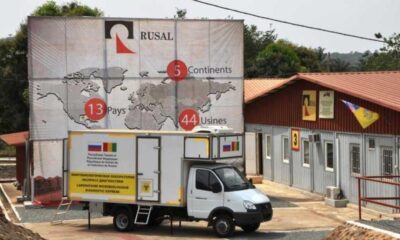Global Issues
Rohingya People And Myanmar Military Onslaught -By Elvis Ogah


As you read this, world leaders are gathered under one roof for the 72nd Regular Session of the UN General Assembly (UNGA 72) in New York. The General Debate opened today, with the theme, ‘focusing on People: Striving for Peace and a Decent Life for all on a Sustainable Planet’. This theme, coupled with a call to action from Amnesty International, spurred me on to pen down my thoughts on what the UN High Commissioner for Human Rights has tagged “a textbook example of ethnic cleansing”.
Over 400,000 Rohingya people have fled into Bangladesh and other neighboring countries since the launch of fresh operations by Myanmar’s military last month. But who are the Rohingyas? A brief historical background won’t hurt. The Rohingya people are a stateless Indo-Aryans from Rakhine State, Myanmar. Majority of them are Muslim while minority are Hindu. Even in “their own” country, they are referred to as non-citizens. They speak Rohingya or Ruaingga, a language that is dissimilar to others spoken throughout Buddhist Myanmar.
They are not considered one of Myanmar’s 135 official ethnic groups and have been denied citizenship since 1982, an appalling situation which has tragically rendered them nationless! What’s more? A law in Myanmar made it almost impossible for them to study, work, travel, marry, practice their religion and access medical services. The Rohingya people cannot even vote. A sad condition which prompted the United Nations in 2013 to describe them as “one of the most persecuted minorities in the world”.
Tired of the beggarly, deplorable and piteous condition of its people, a small and ill-equipped fighter group sprang up under the name – The Arakan Rohingya Salvation Army (ARSA), with an intent to defend, salvage and protect Rohingya community. According to the ARSA leadership, they would do this with their best capacities given they have the legitimate right under international law to defend themselves in line with the principle of self defence.
ARSA has since been declared a terrorist organization by the Myanmar government even though in March this year, the group released a statement that they are “not associated with any terrorist group across the world” and does “not commit any form of terrorism against civilians regardless of their religious and ethnic origin”.
Myanmar’s military, since August 2017, has carried out a fresh crackdown in its bid to rout out the Rohingya Salvation Army and further an agenda that bears semblance to a systematic purge of an ‘unwanted’ ethnic group. Outcomes of the military onslaught has been debilitating. It offends God and betrays our common humanity. Images are seen of pregnant women and little children tripping down muddy gullies and sunken creeks. Thousands of hunger-stricken children, each day, in a file stretched over 5 kilometers are seen trudging towards border countries. The older ones look skeletal and wasted, their babies appear scrawny, starved, dehydrated and gaunt.
The Army launches methodical attacks on villages, with fighter jets raining down fire on civilians and ground troops cutting off escape routes. During such crackdowns, Amnesty International have reported and exposed the horrific torture, rape and abduction of men, women and children at the hands of Myanmar security forces.
The action of Aung San Suu Kyi, Myanmar’s State Counsellor and de facto leader has not been commendable. Her speeches on this crisis comes too late and when they do come, they are habitually fraught with fabrications and blame. She needs to take responsibility and halt this military campaign against harmless civilians. The world stood by her some 27 years ago when her country’s military junta nullified election results, refused to hand over power to her and placed her under house arrest at her home on University Avenue, Rangoon. She was consequently awarded the Nobel Peace Prize and looked upon as a champion of peace and democracy. Today, the world is disappointed!
Three of the six overarching priorities of Miroslav Lajčák, President of the 72nd session of the United Nations General Assembly (UNGA) includes: Making a difference in the lives of ordinary people; prevention and mediation for sustaining peace; human rights and equality. We thus call on the United Nations and world leaders to make true these priorities and see to the end of the ongoing Military onslaught on the Rohingya People.
Peace to the World!
Ogah, a Political Economist wrote in from Abuja, Nigeria.


















